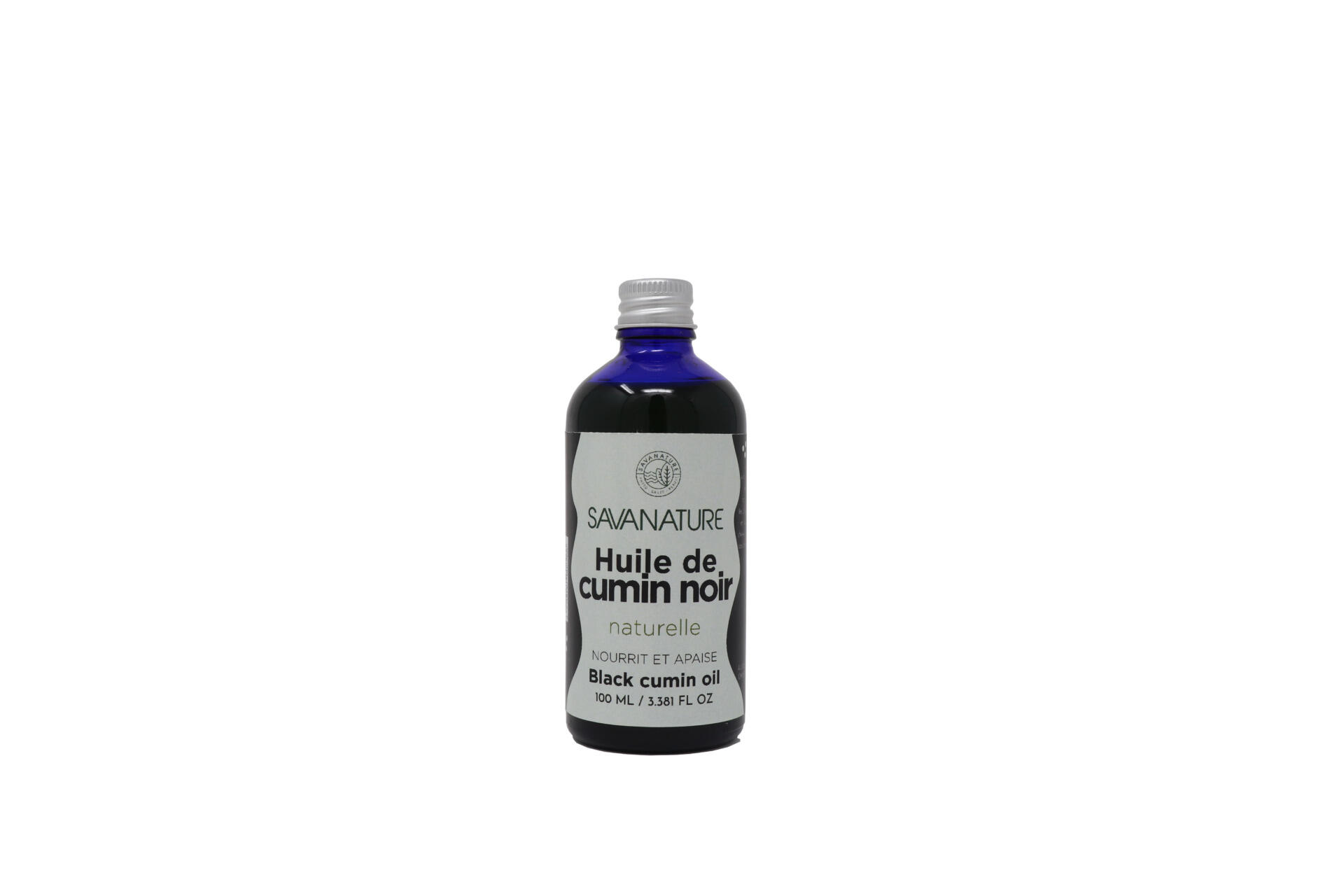Black cumin is a herbaceous plant native to North Africa. Its cultivation and use dates back to antiquity and black cumin oil was found in the tomb of Pharaoh Tutankhamen, earning it the nickname "oil of the Pharaohs". It is also said to be the secret of Nerfertiti's perfect complexion.
Known by the Arabic name of Habbatul baraka, which means "Seed of BlessingBlack cumin is particularly used and prized in the Middle East.
Black cumin oil is extracted from the seeds of the black cumin plant by cold pressing. These seeds, which strongly resemble those of the poppy, are located in the fruit capsules of the plant and are extremely rich in vitamins, amino acids, polyunsaturated fatty acids, minerals and essential oils.
Used for thousands of years for its medicinal properties in India and Egypt, in the Middle East as a spice but also in phytotherapy and aromatherapy, black cumin oil arrived in Europe in the early 1960s. It has been the subject of more than 450 studies since 1964!
Black cumin oil is very rich in unsaturated fatty acids, essential oils and anti-oxidant, anti-allergic and anti-inflammatory ingredients. However, it is advisable to avoid applying it around the eyes and mouth (it can be aggressive to the mucous membranes).
Main benefits
Cosmetic (for skin use)
- Painkillers (3)
- Anti-inflammatory (3)(6)
- Anti-infective, antimicrobial (4), anti-infective
- Antioxidant
- Anti-rheumatic (6)
- Sanitizing
- Healing
- Anti-radicular
- Nourishing
- Regenerating
- Softening and soothing for the skin.
Other benefits:
- Emollient
- Toning (skin and hair)
Uses and synergies of black cumin vegetable oil
Skin indications (skin, hair, nails)
- Abscess
- Mild burn
- Hair loss
- Light scarring
- Pain
- Eczema, atopic eczema, allergic eczema
- Crack, fistula
- Cracking
- Hemorrhoids (local application)
- Infection (as prevention, or in combination with appropriate treatment)
- Skin or joint inflammation
- Irritation
- Toning muscle massage
- Mycosis
- Fragile, sensitive or problematic skin
- Psoriasis
- Shaving (after shave tonic)
- Inflammatory skin reactions
- Rheumatism
- Wrinkles
- Skin ageing (prevention)
- Zona
Practical tip
For cosmetic use, black cumin oil can be used pure or mixed with another vegetable oil or essential oils.









Reviews
There are no reviews yet.